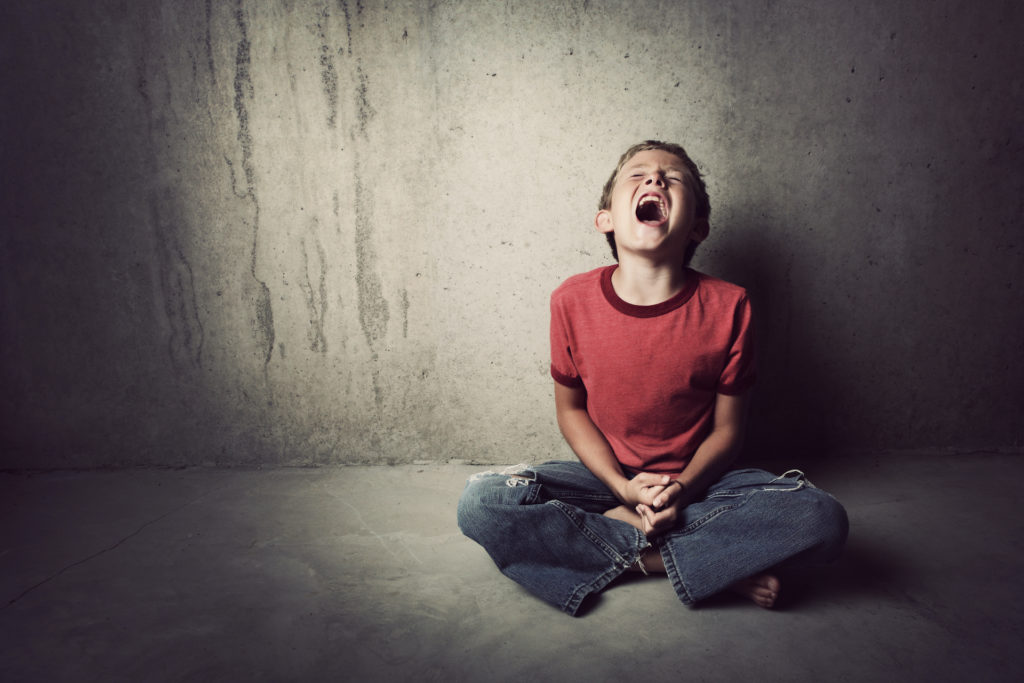
Childhood sexual abuse is something that isn’t often talked about, although awareness and open discussion is a step in the right direction to stopping and preventing the cycle from happening again. Studies show that one in ten children will be sexually abused at some point. Raising awareness will not only be a step towards prevention for current and future generations, but can also lead to a necessary healing process.
The Effects of Childhood Abuse
Children who are abused often forget their experience, although they develop lasting effects that have the potential to wreak havoc on their adolescence and adulthood. Below are some common similarities of survivors of childhood abuse.
- Trouble regulating emotions, leading to outbursts in violence or emotional withdrawal.
- A lack of age-appropriate social skills, which results in unstable friendships and relationships with peers.
- Early-age substance abuse, delinquency, and academic failure.
- A tendency to become depressed or anxious.
While these are potential warning signs that peers and adult supervisors like teachers or doctors should look out for, childhood abuse is still largely unnoticed and underreported. Educating the public is a crucial step in stopping the abuse cycle.
My Experience of Healing and Overcoming Childhood Sexual Abuse
Healing and overcoming the trauma of childhood sexual abuse is possible, and it begins with asking for help.
The sexual abuse of children often goes unspoken by both victims and the families involved, but it happens more often than many are aware of. While most victims of childhood abuse will not be abusive in their lifetime, abuse can be generational, a most unwanted and harmful tradition passed down from parent to child.
While there are estimates of child abuse listed, the actual incidence of abuse is likely much higher, as the abuse may go unreported by the child and unnoticed by his or her caregivers. It’s estimated that only 38% of survivors report their childhood sexual abuse case. In some cases, a victim may be too young to understand that what is happening is wrong and, as they grow older, they simply forget the abuse.
Stopping a Potential Family Legacy
There is a theory referred to as the family legacy, a phenomenon in which adversity experienced in childhood perpetuates itself. In other words, children who grow up in an environment of abuse, domestic violence, mental illness, or other harmful or difficult circumstances are potentially likely to “pass on” the legacy to their own children.
My father suffered sexual abuse as a child. Being the victim of abuse, it seems, is generational in my family as I experienced it too. It has taken me a long time to fully accept what happened and even longer for me to share my story with anyone else. I, like so many others who have experienced childhood trauma, felt a deep reluctance to reveal my truth, even to myself. The truth, though, never simply disappears, no matter how deeply we bury the memories inside of ourselves. They follow us into adulthood, manifesting in thoughts, feelings, and behaviors that can affect every aspect of our lives. I began to think of this pattern as similar to that of alcoholism, a repetitive cycle difficult to escape.
Sometimes, under such circumstances, we begin to believe there is no escape, that we are ill-fated to follow in the footsteps that lie before us. Considering my father’s experiences and recalling the abuse, violence, and mental illness I encountered in childhood, I felt the odds were stacked against me. Carrying a secret as overwhelming and damaging as childhood sexual abuse into adulthood produces a number of maladaptive thinking patterns and emotions, including anger, depression, fear, and anxiety. I began doing poorly in school, I was getting in trouble, and I was heading in a bad direction.
The Benefits of Speaking Out
All of this changed when I decided to begin therapy. I first shared my story when I made the decision to begin my own healing, and now I wish to do so publicly to encourage other survivors to do the same.
There are a great many reasons adults who were sexually abused as children do not seek help, including self-blame, shame, and denial. It’s difficult, and scary, to reveal something of yourself so deeply rooted, especially something you may have worked so hard to avoid or deny. It takes a great deal of trust and vulnerability, two things many people who have experienced sexual abuse often have issues with. It also requires courage and strength, which is something survivors of childhood trauma have an abundance of.
My healing began both with seeing a therapist and through my friend, Dr. Risa Gold, a psychiatrist with expertise in childhood abuse. With Dr. Gold’s guidance and support, I learned to acknowledge, accept, and overcome the trauma I experienced. I came to understand that childhood sexual abuse is far more common than most people realize and that the family legacy of abuse and adversity can be broken. I discovered, too, that disclosing my experience was not only crucial to my recovery but also to raising awareness of the issue. When we share our stories, we remove the shame and the stigma, we open the door to conversation and understanding, and we, most importantly, inspire others to come forward and begin to heal.
Dr. Gold once had me promise her that I would do my part in spreading awareness of childhood sexual abuse by sharing my story, and I am keeping that promise with a book due out later this year. I know both the pain of suffering from the secret of childhood trauma and the peace of recovery, and I am committed to helping others find that same solace. There is so much left unspoken when it comes to childhood sexual abuse, and, until others find their voice, I will speak for the survivors who deserve to be heard.